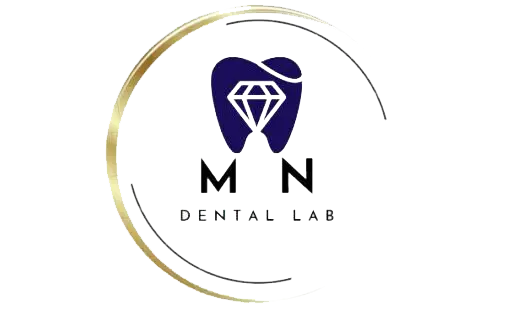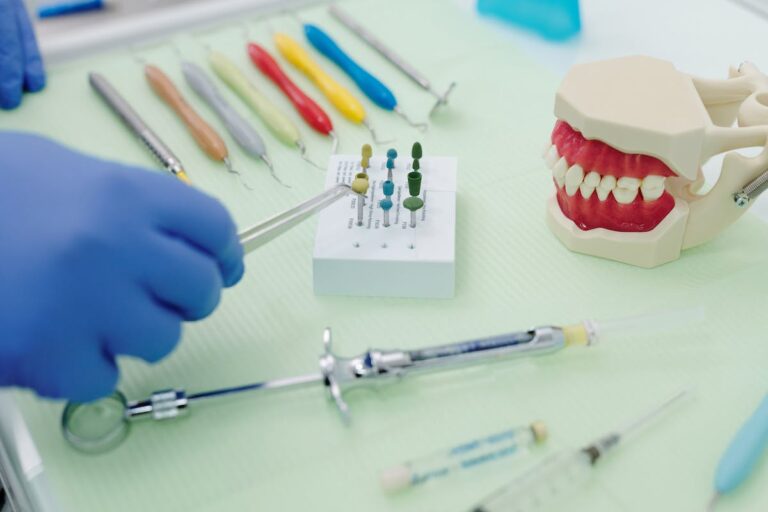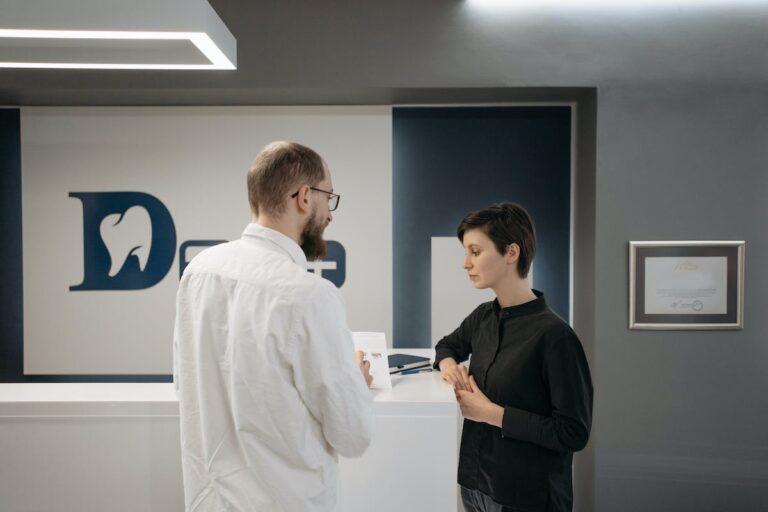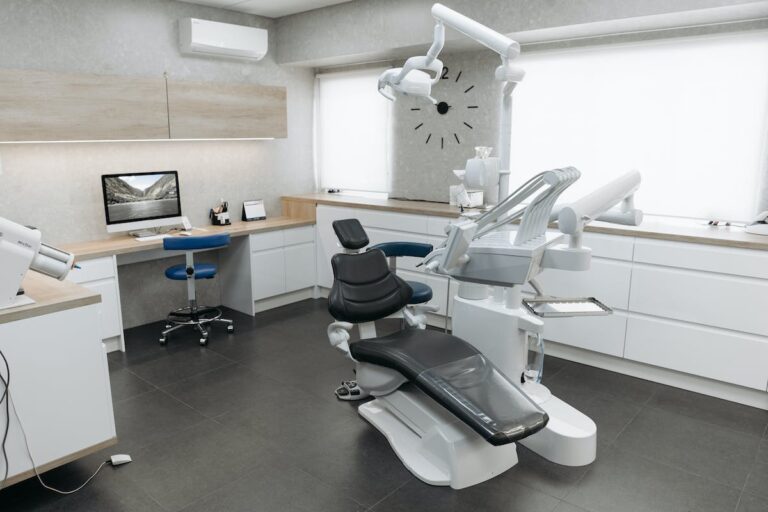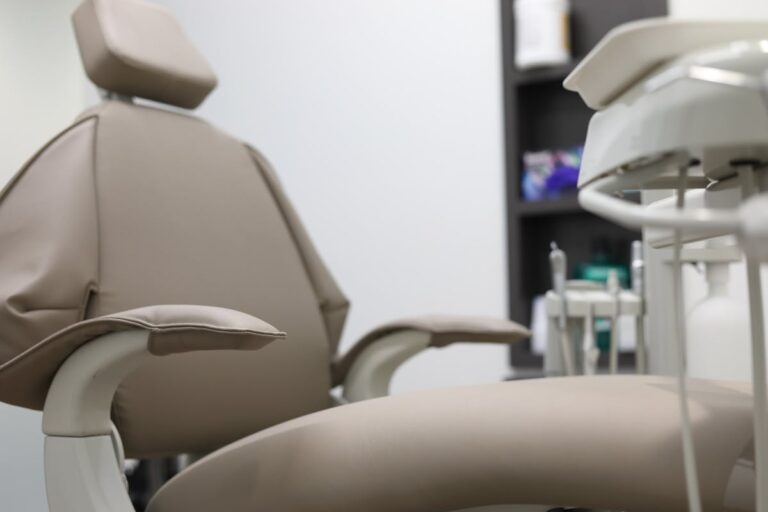A successful dentistry career requires comprehensive understanding of options: choosing an apt dental school, maximizing resources, preparing for licensing exams, and considering specialty training. This guide presents key insights and advice for dental students, aiding informed decisions shaping future practice. The question is, how to navigate these considerations effectively, leveraging opportunities and tackling challenges for a fulfilling dental career?
Understanding Dentistry Career Paths
Dentistry careers encompass various professional pathways, including dental entrepreneurship. This path combines dental science with business, enabling dentists to manage private practices or start dental-related enterprises. Key skills include business acumen, leadership, and strategic thinking.
A vital element of modern dentistry is the integration of new technologies, which have transformed diagnoses, treatments, and patient comfort, pushing the industry towards minimally invasive procedures. Dental professionals who adopt these advancements optimize their career prospects.
Selecting the Right Dental School
Selecting an appropriate dental school is vital for a dental student’s journey. The institution’s reputation and curriculum rigor are key decision factors. Evaluating these factors promotes alignment between the school’s services and the student’s goals and abilities, fostering a beneficial learning and professional growth environment.
Evaluating School Reputation
Evaluating dental school reputations aids informed decisions about dental education. Key factors include school financing and faculty diversity.
- Accreditation: The school’s accreditation by a recognized dental education body validates its legitimacy.
- School financing: The availability of the school’s financial resources, scholarships or grants, impacts affordability.
- Faculty diversity: Faculty diversity enriches education through varied perspectives and expertise.
- Alumni success: The success rate of alumni in dental careers reflects the school’s effectiveness.
Each word is purposeful, providing clarity and context for NLP and semantic search engines.
Considering Curriculum Rigor
Selecting the right dental school requires consideration of curriculum rigor, personalization, and extracurricular activities. A rigorous curriculum ensures comprehensive understanding of dental sciences and readiness for professional demands. Personalization opportunities allow curriculum alignment with career goals. Some schools offer study tailoring in specific areas of interest. Extracurricular activities, like research and community service, enrich learning and develop interpersonal skills, promoting a holistic dental education.
Maximizing Dental School Resources
Optimizing resources in dental schools significantly enhances student learning. Libraries, rich in knowledge, are often underutilized. Effective study groups foster collaborative learning, vital in the diverse, complex field of dentistry.
Utilizing Library Resources
Dental students can enhance academic progress and professional development by effectively using library resources. Understanding library organization is crucial, particularly the location and use of reference materials.
Students can:
- Learn the library structure, including sections and categories.
- Use reference materials like dental textbooks, research journals, case studies.
- Participate in library workshops or training sessions for optimal use of resources.
- Regularly monitor new arrivals for the latest dentistry research and developments.
Effective Study Groups
Dental students can enhance learning by participating in effective study groups, a resource offered by dental schools. These groups promote shared learning, facilitate discussion on complex dental theories, and help refine understanding. Employing study strategies like active recall and spaced repetition within the groups optimizes learning. Understanding and maintaining group dynamics is vital for a productive study environment. Active, balanced participation of all members fosters a positive learning atmosphere, making study groups an effective tool for academic success.
Succeeding in Dental School
Success in dental school entails academic diligence, practical skills, and time management. It is critical to balance academics and manage stress due to the course’s intensity.
The following strategies facilitate success in dental school:
- Consistent study routine: Regular study enhances information retention, reduces cramming.
- Physical activity: Regular exercise relieves stress, boosts mood, enhances focus.
- Support network: Peers and faculty offer valuable insights, advice, and emotional support.
- Self-care: Time for relaxation and enjoyable activities prioritize mental health alongside academics.
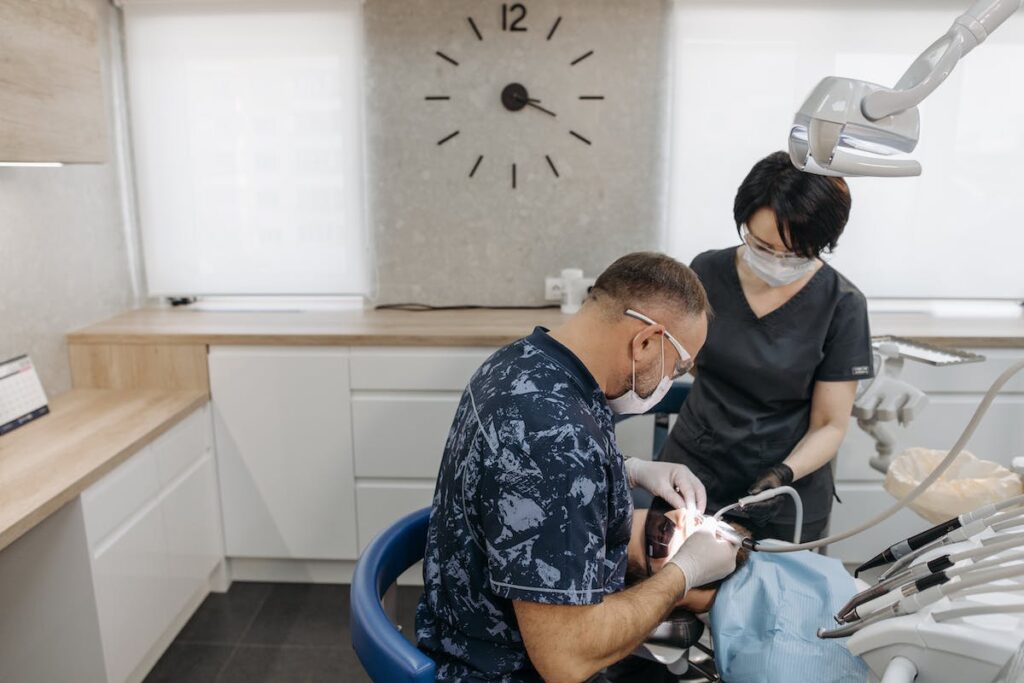
Preparing for Dental Licensing Exams
Post-dental school, students face dental licensing exams, a critical step for transitioning to professional practice. A focus on exam anxiety management and time management strategies is essential for optimal preparation.
Firstly, managing exam anxiety is crucial for performance. Techniques include regular exercise, mindfulness meditation, and sufficient sleep. Support from peers, mentors, or professionals can aid in coping with stress.
Secondly, effective time management is vital due to the extensive review material. A structured approach involves breaking down the syllabus into smaller sections, with specific study times allocated to each. Regular breaks prevent burnout and boost productivity.
Gaining Practical Experience
Practical experience, gained through internships, is crucial for dental professionals. Internships offer real-world exposure, enhancing technical skills and understanding of patient care in dental practice.
Internships in Dentistry
Dental internships provide practical experience, enhancing academic knowledge through real-world application. They help students refine clinical skills, understand patient interactions, and familiarize themselves with dental office environments. These opportunities also provide networking with industry professionals, potentially leading to job offers post-graduation. Recommendations for students include seeking internships in their intended specialty, preparing for rigorous hands-on training, practicing patient communication and empathy, and leveraging networking opportunities.
Real-World Clinical Exposure
Real-world clinical exposure is critical in dental students’ education. It provides practical application of theoretical knowledge and hands-on experience. This exposure enhances skills, boosts confidence, and tests stress management. It also develops patient interaction skills, emphasizing communication, empathy, and understanding. With technological advancements in dentistry, students can learn the latest tools and techniques. Thus, this exposure shapes competent, confident, and technologically adept dental professionals.
Specialty Training for Dentists
Specialty training in dentistry offers a deeper understanding of specific dental areas, enhancing skills and expertise. It leads to opportunities in dental entrepreneurship and teledentistry. Dental fields for specialty training include:
- Endodontics: Diagnosis and treatment of dental pulp.
- Orthodontics: Correction of teeth and jaw alignment issues.
- Periodontics: Prevention, diagnosis, and treatment of periodontal disease.
- Prosthodontics: Replacement of missing teeth with prosthetics.
This training boosts dentist competencies, enabling a focused approach to patient care. It differentiates dentists in the competitive field and may lead to leadership roles or independent practices. Teledentistry has also grown, offering a new way to reach patients and provide care. Specialty training, therefore, benefits aspiring dental professionals.
Dental Residency Programs
Dental residency programs provide dental professionals with additional specialty training to enhance their skills and deepen their knowledge. These programs offer a multitude of benefits such as hands-on experience, advanced training, and collaboration with seasoned dental professionals on intricate cases.
The benefits of residency programs are numerous and vital for the professional growth of a dental professional. The hands-on experience allows residents to apply their skills in a supervised setting. Advanced training exposes them to the most recent technologies and methods in dentistry.
Choosing a residency specialty is a significant step in this process. Dental professionals should evaluate their long-term career aspirations, interests, and the type of work involved in the chosen specialty. Factors such as the program’s reputation, faculty, curriculum, and opportunities for research or teaching should also be considered.
In essence, dental residency programs bridge the gap between academic learning and clinical practice. They serve as a transition platform, shaping the future career trajectory of dental professionals.
Continuing Education for Dentists
Continuing education is essential for dentists to stay updated with the latest advancements and practices. It enhances their abilities to provide quality care and stay competitive.
Dental technology advancements require dentists to engage in continuous learning. This helps them use new technologies effectively, improving diagnosis and treatment.
International dental education offers global insights into diverse practices, enhancing dentists’ knowledge base.
Strategies for maximizing benefits from continuing education include attending international conferences, enrolling in online courses, participating in hands-on workshops, and engaging in professional networks. These activities provide learning opportunities about global dental trends, latest technology, new techniques, and peer-learning respectively.
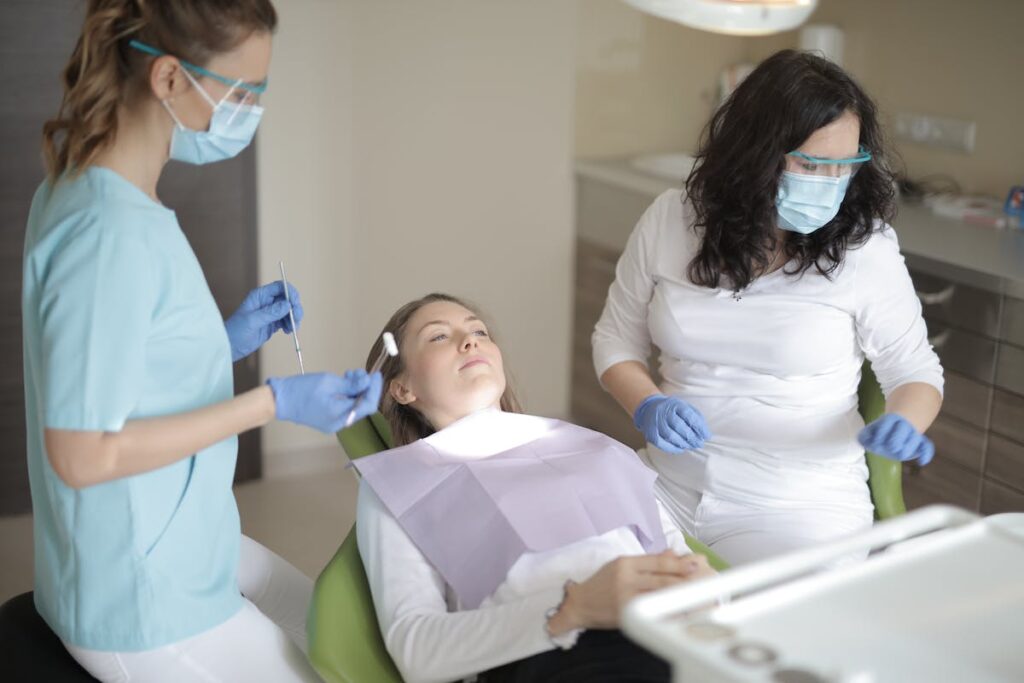
Building a Successful Dentistry Practice
Mastering the latest dental techniques is essential, yet understanding business and management principles is necessary to establish a thriving dental practice. Dentists need entrepreneurial skills for a profitable practice.
Effective marketing strategies, including a distinctive brand, professional online presence, and social media use, are key to reaching potential patients. Excellent customer service and strong patient relationships can generate positive reviews and referrals, expanding the client base.
Keeping up with dental technology advancements provides a competitive edge, as state-of-the-art equipment and innovative procedures enhance patient care. Regular investments in new technologies boost operational efficiency and profitability.
Efficient financial management and understanding of legal regulations are crucial for successful dentistry practice. Minimizing overhead costs, optimizing resource allocation, and adhering to industry standards ensure sustainable growth. Building a successful dentistry practice requires balancing clinical skills, business acumen, and a patient-centric approach.
Frequently Asked Questions
What Are the Common Health Risks Associated With a Career in Dentistry?
Dentistry careers pose musculoskeletal disorder risks due to improper ergonomics, and potential risk of infectious disease transmission from patient contact. Proper equipment upkeep and stringent infection control measures can mitigate these risks.
How Does the Income of a Dentist Compare With Other Health Professionals?
“Dentist income, influenced by factors such as specialization, location, and entrepreneurship, may align with earnings of other health professionals when effectively negotiated.”
What Are the Emotional and Psychological Challenges Faced by Dental Students and Professionals?
“Dental students and professionals frequently encounter stress, burnout, and anxiety, triggering emotional and psychological challenges. Effective stress management techniques and peer support significantly alleviate these problems, fostering overall well-being.”
Can a Dentist Practice in Different Countries After Receiving Their Degree in Their Home Country?
Indeed, dentists can practice globally post-degree attainment, contingent on successful navigation of license transfer procedures and adherence to the host country’s specific international dental regulations.
Are There Opportunities for Dentists to Engage in Research and Teaching?
Indeed, dentists can engage in research, aided by diverse funding sources. Additionally, they can teach, employing innovative techniques to instruct future dentists. Both research and teaching can foster professional development.
Conclusion
Dentistry offers a rewarding, diverse career path. Key to success is the right dental school choice, effective resource utilization, and academic excellence. Crucial milestones include dental licensing exams, specialty training, residency programs, and continuous education. Prosperous practice requires business acumen. Dental students must leverage educational resources for successful career navigation in dentistry.
